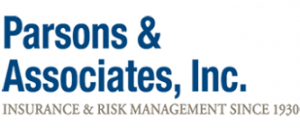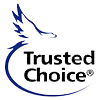Your Business | Spring – Summer 2014
|
|
 folder/images/agency-parsonassociates.jpg)
|
|
|
[Spring/Summer 2014 • New York] |
||
 folder/images/paper.jpg)
|
|||||||
EPLI: Protecting your business from employee lawsuitsEmployment practices lawsuits are only a concern for larger companies, right? You run your business by the book and you know how your employees feel about the company and its practices. These lawsuits aren’t something you need to worry about, right? Wrong. Even if you run your business by the numbers, lawsuits still can occur. Wrongful termination; discrimination in the hiring practices, including age, sex and race; sexual harassment; and not following the requirements set by the Family and Medical Leave Act and the Americans with Disabilities Act, are just a few of the more popular reasons for employee lawsuits—and these affect businesses of all sizes. Title VII of the Civil Rights Act of 1964 and the Titles I and V of the Americans with Disabilities Act of 1990 were expanded in 1991 to permit jury trials and compensatory and punitive damage awards in intentional discrimination cases. In 2012, there were 99,412 charges filed with the Equal Employment Opportunities Commission against employers and 365.4 million in monetary benefits paid (not including litigation settlements). Employees are being awarded payments for back wages, compensatory damages and So, lawsuits are out there; where’s Standard business policies and commercial general liability coverage provide little or no protection against employment practices claims. Also, coverage for such claims has been omitted from the employers’ section of workers’ compensation forms. That’s why having employment practices liability insurance is vital for Good personnel practices alone do not insulate you from a liability suit. And, while documentation can help, employers must defend themselves even against groundless allegations—that has proved to be expensive. EPLI offers protection against the crippling costs of wrongful termination, discrimination and sexual harassment suits. It provides defense for the company and any employees named as defendants in a lawsuit. It may cover a wide range of monetary damages, including loss of wages and benefits, as well as the cost of investigating, defending and settling claims. Thinking about purchasing an EPLI policy? Want to make sure you have enough coverage in your existing policy? Please give us a call today or stop by the office. We’ll help you make an informed decision. |
|||||||
The importance of business interruption coverage“Business income coverage” protects against lost income and the payment of continuing expenses if operations cease, and “extra expense coverage” protects if operations can continue at a substitute location. Generally, business interruption coverage is triggered when a business is physically damaged by a covered cause of loss. You can select the covered “causes of loss” from the perils offered by the insurer at the time your policy is written. Remember, although damage may occur due to a covered cause of loss, if the damaged property is located somewhere other than on the insured’s premises, the business interruption loss is not insured under the basic coverage. Establishing coverage limits for business interruption coverage is not a simple process. In order to choose a limit for business income coverage, you must project future income and expenses one year in advance and identify the maximum length of time it will take to restore your property (called the “period of restoration”). For extra expense coverage, you will need to determine all the extraordinary costs that will be incurred to maintain operations at another location. Adequate financial records are necessary to establish these limits and properly support any claim presented under these coverages. |
||||
 folder/images/van.jpg) |
||||
Would you benefit from a company car?Commercial vehicle insurance differs from a personal automobile. If you make your living transporting people around or delivering goods, you need to make sure your vehicles have the proper insurance to cover them and their cargo in the event of an accident, theft or vandalism. Here’s a brief overview of coverages: There are a variety of vehicles that can be used in a business (e.g., construction vehicles, emergency vehicles, farm tractors, passenger buses, semi-trucks, etc.) for which the business will need liability, uninsured/underinsured motorists, no-fault (if applicable) and physical damage coverages. Don’t forget about additional insurance products that are designed to protect the goods inside the vehicles. Several kinds of inland marine policies will cover the value of cargo (owned by you or owned by your client) and protect it in the event of theft; loss; an accident; or other damage—which take place during transit. If you are going to include your personal auto under your commercial auto policy, please let us know because you may lose some coverages for the family using non-owned vehicles. These insurance coverages can be as diverse as your business, so give us a call to make sure you are insured properly. |
||||
 folder/images/stairs.jpg)
|
||||
Floods can happen at any time. Is your business prepared?Floods are one of the most common natural disasters, especially in the spring. Winter run off, heavy rains and water backup from overloaded drainage systems can cause thousands of dollars in damages to businesses. Unfortunately, too many business owners find out too late that their business insurance policy does not cover flooding. Year after year, flooding is not only more common, it is more devastating. According to the National Flood Insurance Program, at least 25 percent of businesses that close after events, like a flood, never reopen. From 2008 to 2012, the average commercial flood claim was more than $75,000. Flood insurance is the best way to protect your business from devastating financial loss. Coverage for your building and contents is available. Talk to us today about insuring your business and its contents. Typically, there’s a 30-day waiting period from date of purchase before your policy goes into effect. That means now is the best time to buy flood insurance. Have you considered creating a business contingency plan? The initial time you invest in developing a plan will more than pay for itself in the event of a flood or other disaster, saving income and major frustration. A business contingency plan is not a one-time deal. After you create the initial plan, you should be sure that a mandatory annual review is done, accounting for vital information that is retrievable in the unfortunate event something does occur. The plan should address the internal workings of your business, as well as how the business is going to continue operations. Should the worst-case scenario occur and your business is affected by a flood, remember: Your safety and that of your employees comes first. Do not return to your property until authorities have signaled that it is safe to do so. When you approach your business, look for unsafe conditions (e.g., downed power lines, the smell of natural gas and unstable structural conditions). Once you’ve reviewed the area, shut off all utilities (e.g., electricity, natural gas, water, etc.) before inspecting the damage. Do not drink tap water until authorities have advised that it is safe. Make sure your staff is aware of the situation, and of these concerns as well. Businesses in high-risk flood areas are not the only ones that need flood insurance. In fact, approximately 25 percent of all flood insurance claims come from areas that are not considered high risk. Keep in mind, flooding can occur any place at any time. Waiting until the next storm warning to purchase flood insurance is dangerous, since coverage probably will not begin in time. |
||||
 folder/images/calculator.jpg)
|
||||
The value of your employee-benefits package
|
||||
News from our agency |
|||||
|
You’ve worked hard to build your business. While the day-to-day operations may keep you up at night, wondering whether or not you have the correct insurance coverages and limits shouldn’t add to your stress level. We are here to help. Insurance for your business is our business. You may require unique insurance policies beyond those that normally are purchased to make sure your business can continue to run smoothly at all times. We can help you examine your particular business risks and suggest insurance coverages you might not have considered. You may have general liability, commercial auto and property policies, but have you considered professional liability, crime, cyber liability, directors and officers liability, employment practices liability and business interruption insurance (to name a few)? Give us a call today and sleep better tonight! |  folder/images/news.jpg) |
||||
|
The information in this newsletter is meant as a guideline only. There is If you prefer not to receive this email newsletter from Parsons & Associates, Inc., click here. |
||||

 folder/images/logo-yb.jpg)





